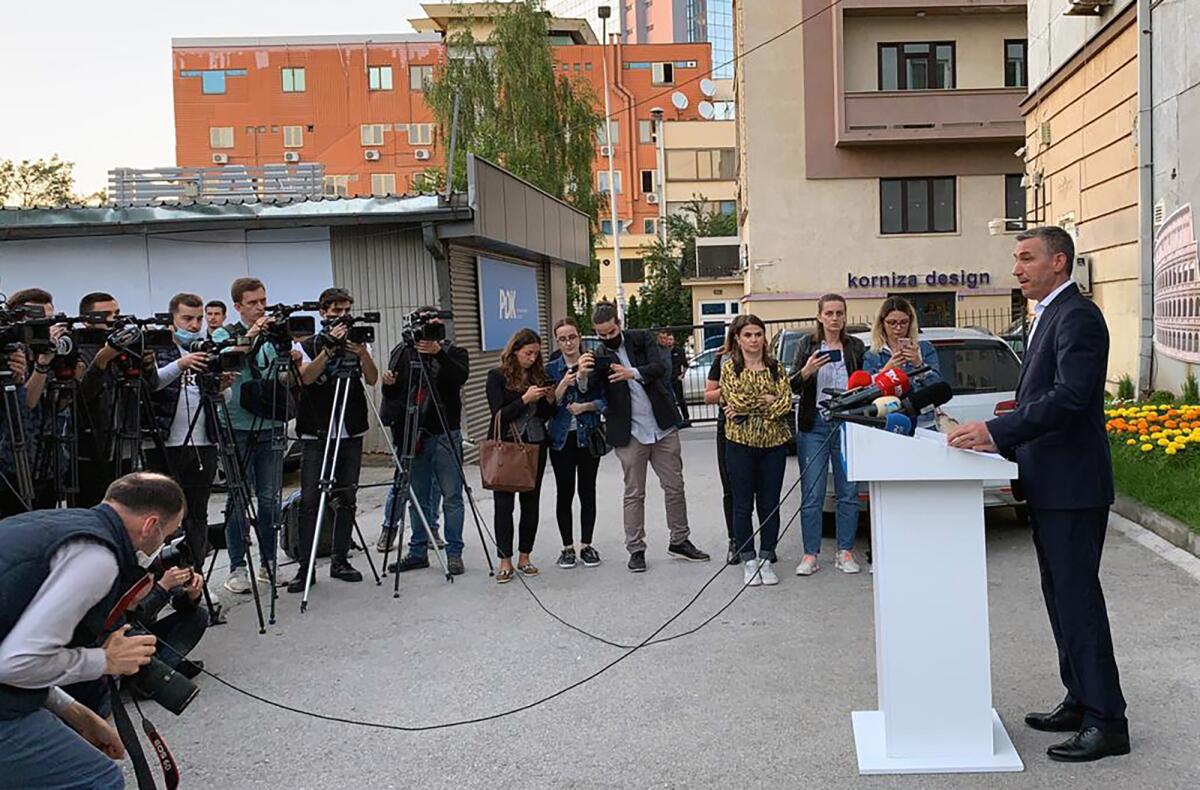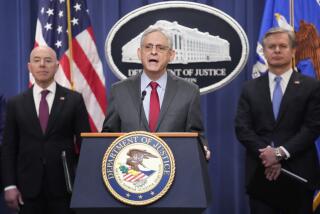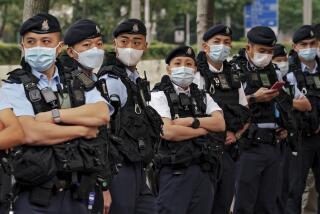A look at Serbia-Kosovo dispute as war crimes charges filed

- Share via
BELGRADE, Serbia — An international prosecutor has indicted Kosovo’s president and nine other former rebel fighters on charges of war crimes and crimes against humanity during and after a 1998-99 armed conflict between the ethnic Albanian separatists and Serbia.
The charges were made public Wednesday as both the European Union and the United States intensify efforts to facilitate a durable settlement to normalize relations between Serbia and Kosovo after decades of tensions and thousands of lost lives.
Kosovo declared independence in 2008, but Serbia has refused to formally relinquish its former province. The issue remains the last source of instability stemming from the Balkan wars of the 1990s.
Here is a look at Kosovo and the history of the conflict:
WHERE IS KOSOVO?
Kosovo is a small landlocked country in the western Balkans, surrounded by Albania, North Macedonia, Montenegro and Serbia. The nation of 1.8 million is predominantly ethnic Albanian and includes ethnic Serbs, Roma and smaller minority groups.
Kosovo used to be an autonomous province in Serbia, and as such, part of the former, communist-run Yugoslavia. The ethnic tensions that later fueled the bloody breakup of the multi-ethnic Yugoslav federation started during the late 1980s in Kosovo but did not explode into open conflict there until 1998.
WHEN DID IT ALL START?
Disputes over the right to claim the 4,203 square miles that make up Kosovo go back decades, if not centuries.
Serbs view Kosovo as their national heartland and trace their presence to the hundreds of medieval Serbian Orthodox Church monasteries dotting the province. A 1389 battle that Serbs lost against Ottoman Turks is a key moment in the nation’s collective history.
The majority Kosovo Albanians insist they are Kosovo’s oldest inhabitants. First granted and then stripped of self-governance within Serbia and the former Yugoslavia, ethnic Albanians claimed they were oppressed by the Serbian state before their fighters launched a rebellion in 1998.
WHAT HAPPENED DURING THE WAR?
After years of peaceful resistance, ethnic Albanians in Kosovo formed rebel Kosovo Liberation Army units and launched sporadic attacks on Serb police and army divisions in 1998. Serbia, led at the time by nationalist strongman Slobodan Milosevic, responded with a brutal crackdown that triggered the North Atlantic Treaty Organization’s intervention in 1999.
More than 10,000 people, mostly ethnic Albanians, died during the war in Kosovo and a million were driven from their homes before the NATO bombing campaign forced Serbia to pull its troops out of Kosovo and cede control to the United Nations and NATO. Thousands of civilian Serbs also fled with the Serbian army and police. Those who stayed behind later faced revenge attacks.
HAVE THERE BEEN WAR CRIMES TRIALS BEFORE?
A United Nations tribunal for the former Yugoslavia tried a number of top Serbian officials and army and police commanders for war crimes committed against ethnic Albanian civilians during the Kosovo conflict. Milosevic also was indicted over Kosovo atrocities by the court in The Hague, but he died in 2006 while on trial.
While most of the atrocities in Kosovo have been blamed on the Serbs, top rebel Kosovo Liberation Army commanders, including President Hashim Thaci, were accused of responsibility for kidnappings, torture, unlawful imprisonment and other crimes against Serb civilians and pro-Serb Albanians.
The Kosovo specialist prosecutor’s office that indicted Thaci and others is part of a separate court in The Hague that was formed in 2015 to investigate alleged crimes by the rebel army, or KLA. Judges are yet to confirm the indictment, which had long been expected.
WILL IT COMPLICATE NORMALIZATION TALKS?
It’s hard to tell.
Thaci has canceled a trip to Washington to attend a White House meeting on Saturday aimed at bringing Pristina and Belgrade closer, but the prime minister will still go. The meeting was called by President Trump’s special envoy for Kosovo, Richard Grenell, who in the past has mediated deals to restore air and railway links between the two countries.
EU-mediated negotiations, which previously resulted in several agreements facilitating day-to-day issues between the two sides, also are set to resume. The negotiations stalled in late 2018, but an EU envoy has said a new round might take place next month.
More to Read
Sign up for Essential California
The most important California stories and recommendations in your inbox every morning.
You may occasionally receive promotional content from the Los Angeles Times.










